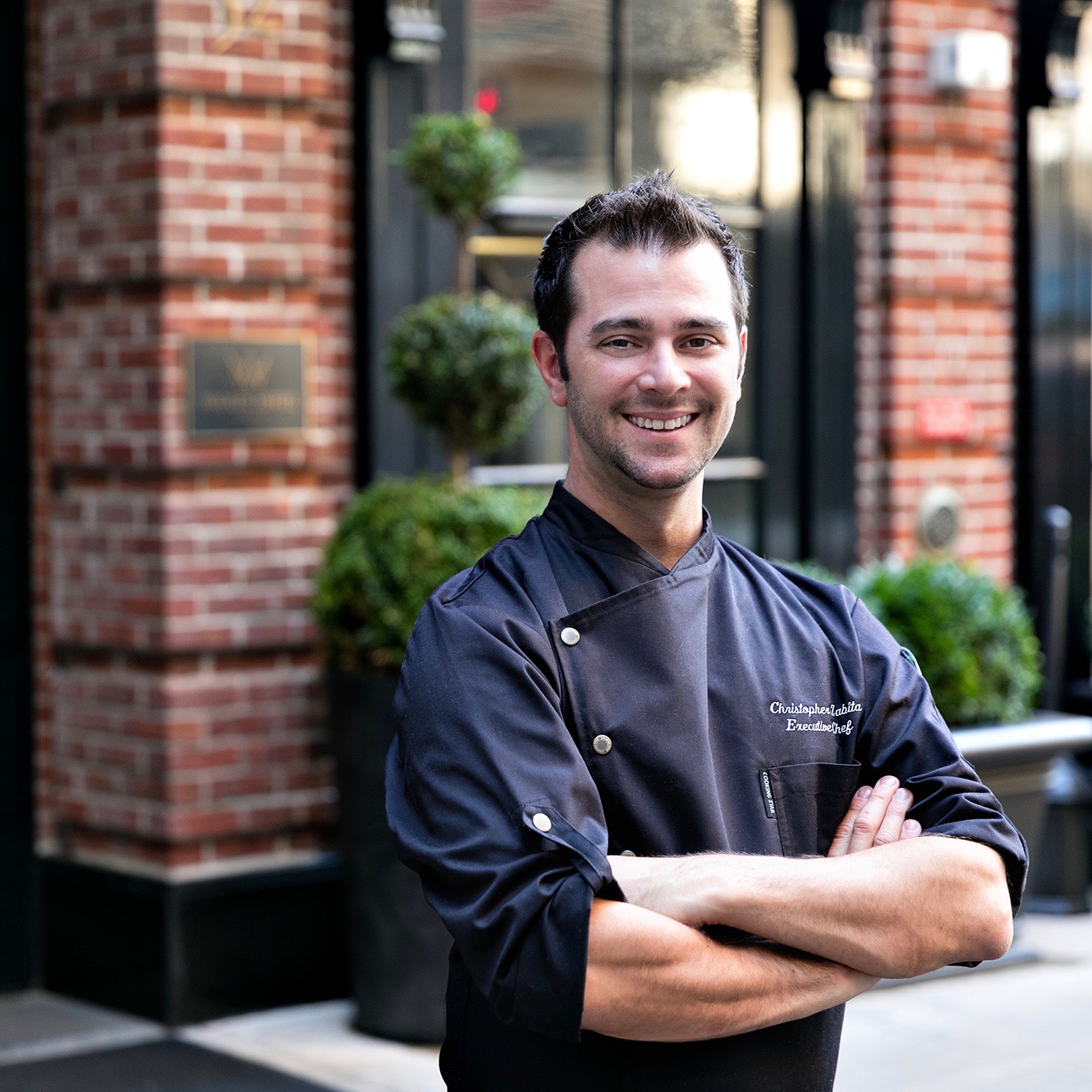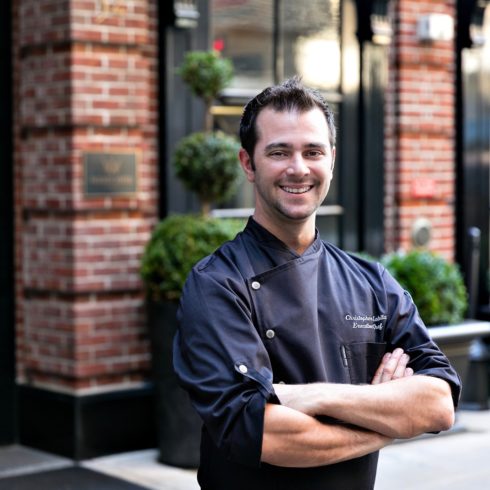Our Team
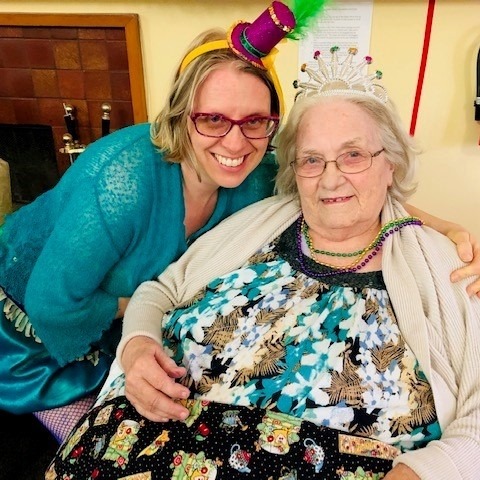
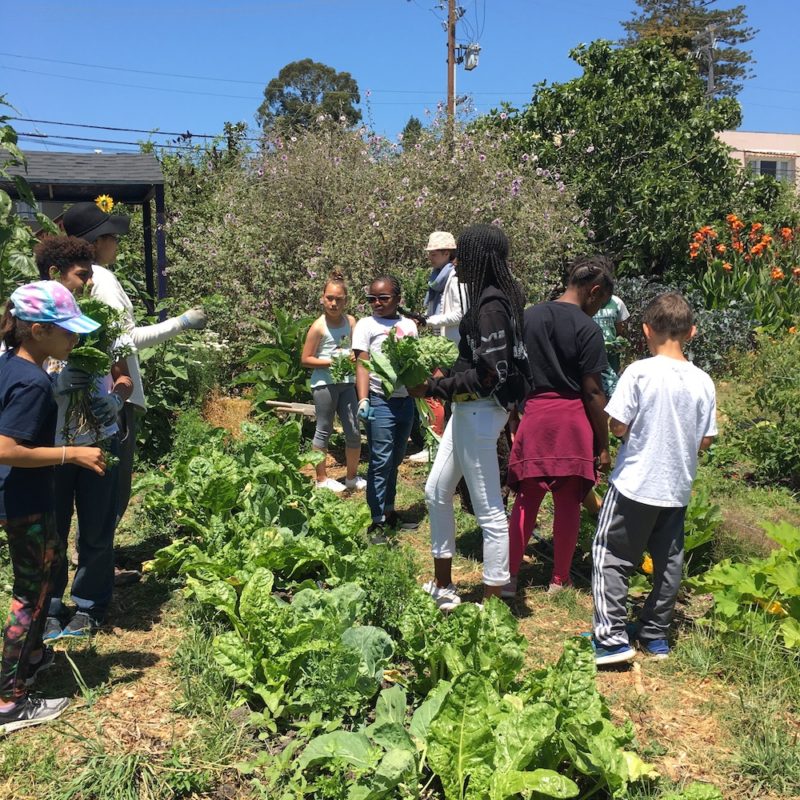

The Inside Scoop
Why do you think it’s important to teach kids how to cook for themselves?
Cooking is such an important life skill to have that will last a lifetime. It is so valuable to learn from teachers who are so enthusiastic about cooking.
What do you want people to know about Chaparral House?
Chaparral House Nonprofit Skilled Nursing Eldercare Community provides resident-centered care in a home-like environment. We have consistently received high ratings and a variety of awards for staff training and quality care. Chaparral House is staffed by loving, caring people skilled at meeting the needs of the aging population. Because of our holistic philosophy that encourages residents to enjoy life as fully as possible despite any limitations they may have from disability or illness, we also provide numerous programs and opportunities for residents to remain active and engaged.
What are your favorite restaurants?
The Natural Grocery Co. Prepared Food Annex
Juice Bar Collective
Renee’s Place
Ajanta
What’s the most fascinating part about working at Chaparral House?
The time we get to spend with all of the residents and the fun activities we get to do with the residents. Chaparral House is a community made up of the residents, their families/friends, staff, volunteers, board members and all the guests that visit each day. It feels good to be part of that. You never know what each day will bring.
How do Sprouts and Chaparral House work together?
Sprouts has been having cooking classes in the Chaparral House garden for several years. This is the second season that they have had their new kitchen equipped with a pizza oven and grill in the garden. The residents are able to see the kids cooking in the garden and spending time in the garden. Having Sprouts cooking in the garden helps keep the residents connected to the greater community and we really value having an inter-generational presence in our garden.
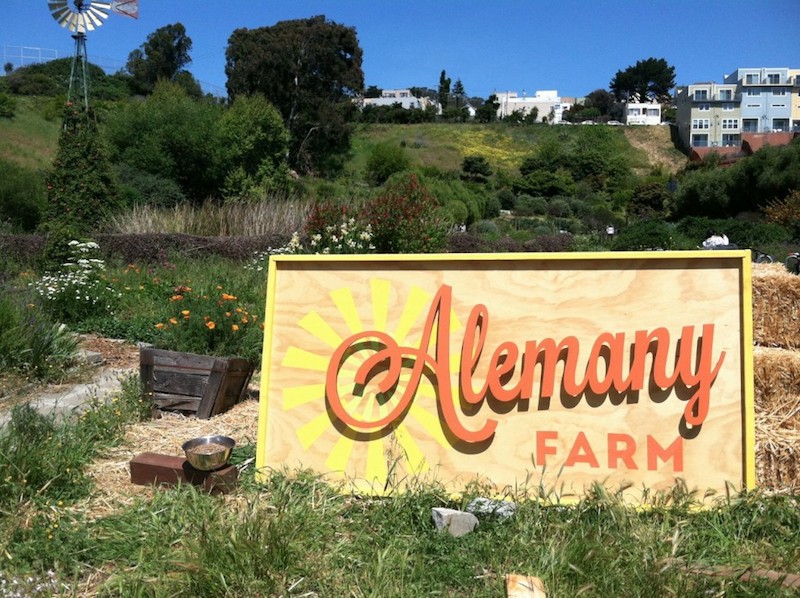
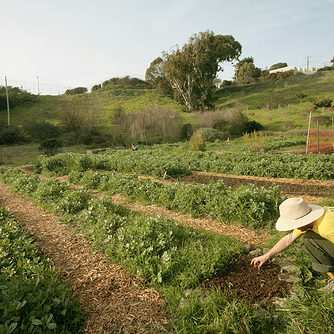
Abby Bell
Teaching kids how to cook is one thing but teaching kids how to plant seeds, harvest produce, and connecting them with the origins of their ingredients is POWERFUL. At Alemany Farm, Sprouts campers pick fruits and vegetables that they use for what they’re cooking that day. Each day, their culinary skills and passion for food become stronger after every dish that they cook! Alemany Farm allows young chefs to connect with their ingredients and provides a wonderful outdoor kitchen for all their delicious creations.
The Inside Scoop
What inspired the creation of Alemany Farm?
Alemany Farm originally started as a job training site for local public housing residents. They turned an abandoned site into a farm, teaching and inspiring community members to grow food, in community, to serve the community. And the best part about farming? Feeding people and watching the plants come into abundance!
What aspect of Sprouts made you interested in helping our mission?
We love the idea of connecting people to and inspiring people about their food, where it comes from and how it grows. We love and support the Sprouts mission. Sprouts and Alemany Farm together have a unique opportunity to educate kids with hands-on tangible experience about the full picture of the food system. And food tastes much better when you harvest it and cook it yourself.
Why is it important for kids to learn how to cook for themselves?
Cooking is a form of empowerment and confidence building. It is also a way to share and give back and be creative. It is a great for kids to explore creativity, build confidence, learn job skills, and give to people.
After a long day of farming, what do you want to eat?
I usually get inspired during the day by what we are growing and harvesting and go home to make something with that… more often than not I eat a big salad.
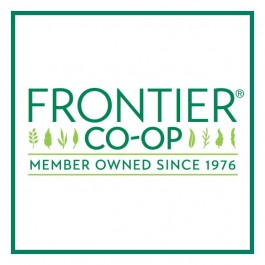
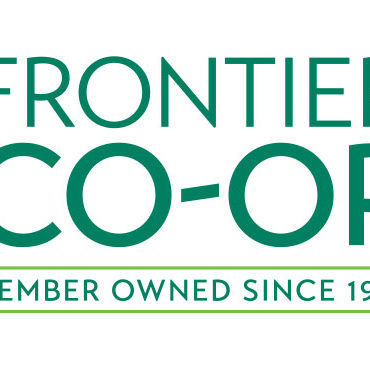
The Inside Scoop
What inspired the creation of Frontier Co-Op?
Natural food co-op stores in the mid-70s were buying products like grains, beans and seeds in bulk and placing them in bins. Frontier Co-op was created to purchase herbs and spices in their original large bags and boxes and repackage them into one-pound bags so the stores could sell them in bulk bins as well, offering economical, customizable quantities to customers.
Why should children learn how to cook for themselves?
It seems to us that kids who have first-hand experiences preparing food tend to be more thoughtful about food and make better choices, especially when they are mentored by those who care about food and nutrition themselves. Learning to cook as a youngster can be the gateway to a lifetime of healthy, enjoyable food experiences.
What aspect of Sprouts made you interested in helping our mission?
Many of our social giving programs are oriented toward helping the children in our sourcing communities get the education and training they need to improve their own lives — and those of their families and communities. Spouts’ programs to change the lives of city kids by teaching them cooking skills is an idea that’s perfectly aligned with our values.
What do you hope younger generations get out of your brand?
We hope our products help nurture a love of flavorful, wholesome food that’s produced with ecological and social responsibility in cooks of all ages.
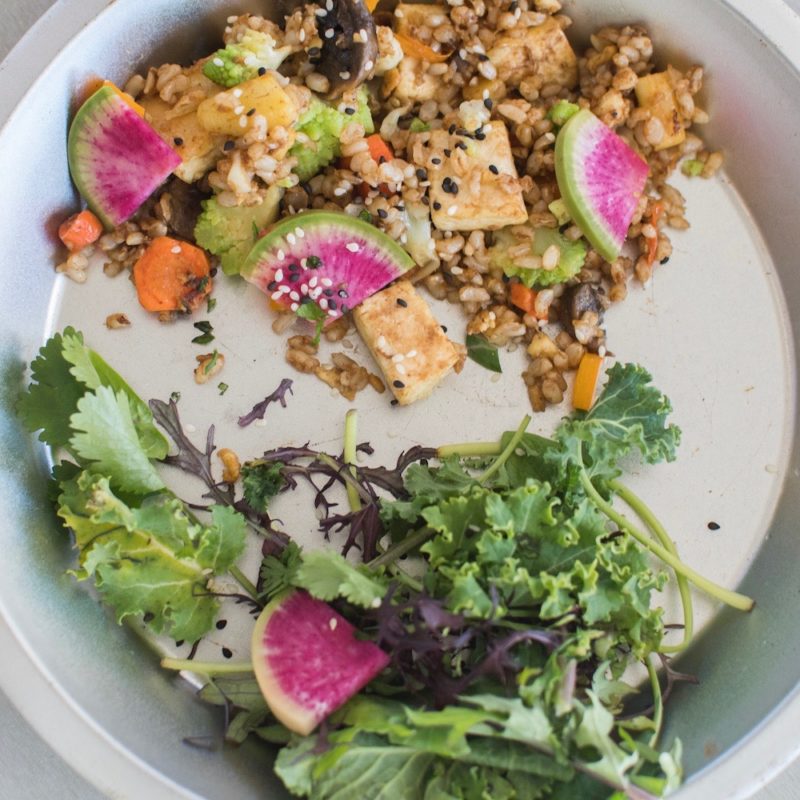
Where do you see Frontier Co-op heading in the next five years?
We hope to continue to grow in the marketplace as a trusted brand for high quality, sustainable and organic products that are produced and marketed responsibly.
What do you want people to know about Frontier Co-op?
We want people to know that we do business in accordance with the values of our member-owners, who champion ethical, socially responsible practices that benefit people and planet.
Where can we purchase your products?
Frontier Co-op products are available throughout the country in stores that support wholesome food and natural lifestyles, as well as from numerous online retailers, including our own site, www.frontiercoop.com.
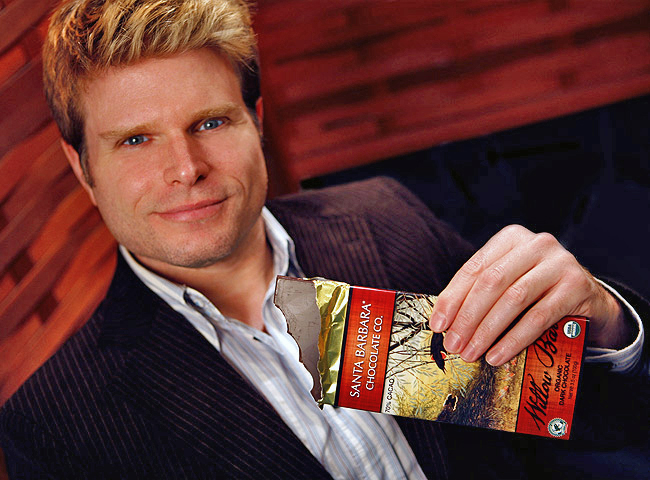

Jason Vishnefske
What’s the secret ingredient that gives our cooking classes a sweet and sustainable twist? We keep it organic and natural in the kitchen with the help of the generous team at Santa Barbara Chocolate. Their wholesome ingredients and decadent sweets always add a special treat to our classes and camps — what’s cooking class without a little dessert?
The Inside Scoop
What aspect of Sprouts made you interested in helping our mission?
The children and promoting happiness are primary motives. We need to take care of each other — In the end, that is all there is.
What is the story behind Santa Barbara Chocolate?
It started with the quest for healthier chocolate alternatives. Seeking quality cocoa beans from the source and educating the public about the importance of sustainability for a healthier planet and personal fitness continues to be a priority. These innovative products include natural sugar alternatives derived from flower blossoms, pure cacao medallions, Organic, Fair trade and Kosher certifications which guarantee the utmost quality.
Why should kids learn how to cook for themselves?
It is a fundamental part of human interaction. Bonding through food is a way of showing we care about each other and we develop our ability to support ourselves at the most basic level.
How else have you gotten involved with the local community?
We support Friends of Ballona Wetlands as they seek to restore the last remaining ecological wetland in Los Angeles County california. Also, www.Obregoncmh.org is near to our hearts as it honors medal of Honor recipients and the sacrifice they have made for our freedom.
What is your favorite dish to make using Santa Barbara Chocolate?
Chicken Mole: because it contains chocolate and it is a square meal which you must have before eating your chocolate dessert. Try it at home!
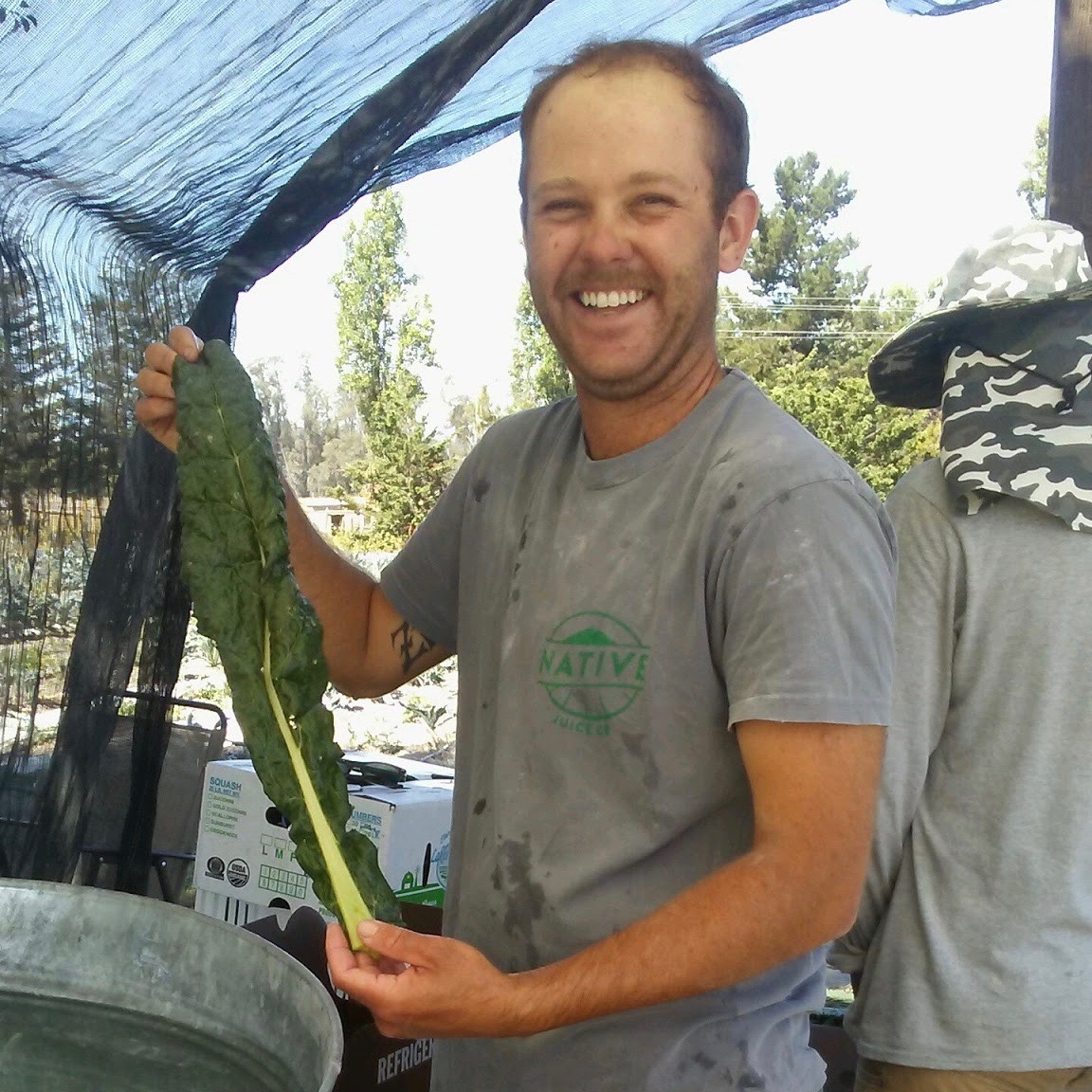
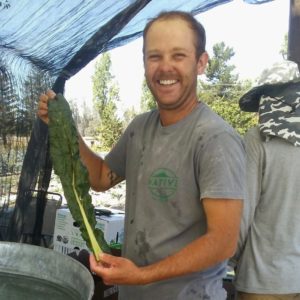
Andy Olson
When Sprouts is in a pinch for fresh herbs or last minute kale: Andy Olson is always our guy. Owning and operating Olson Farms in Petaluma for the last 4 years, Andy Olson is the perfect picture of what your neighborly small farmer looks like. But don’t get us wrong, Olson Farms is no small-time operation. Andy tends to over 5 acres in Petaluma Valley and sells to some big time restaurants here in the Bay Area. He is a dear friend of Sprouts, and one of the hardest working people that we know!
The Inside Scoop
What do you love most about farming?
I love being outdoors all day with my work. I love that at the end of the day, my work amounts to cases of vegetables that feed healthy people and not memos and emails… I don’t find that work as satisfying. Every day my work is my life’s greatest passion.
What made you want to start your own farm?
I started farming because I wanted to use creativity, curiosity, and work ethic to generate a net environmental benefit and carbon sequestration while earning a living. I studied sustainable agriculture at UC Berkeley which really opened my eyes about the current state of food production in America. Mainly, how alienated consumers are from producers. In my business, I am able to have direct relationships with my consumers and see the impact I am making.
What do you want people to know about Olson Farms?
Most importantly, that we are only 50 miles away from you! In today’s food climate, there are a lot of terms thrown around: organic and local being the two biggest. Olson Farms is and always has been completely organic and local. We are 50 miles away from SF, not 150.
Where can we find your produce?
At Native Co. in Downtown SF (Sutter and 2nd St), Sanctuary Bistro, San Rafael and Novato school districts, the Alameda County Food Bank, and of course, Sprouts classes.
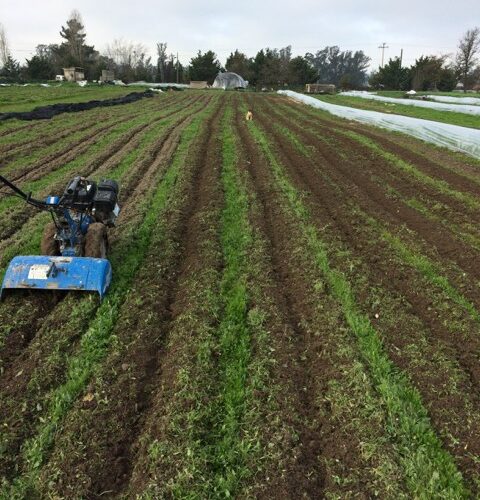
Where would you like to see your farm in 1-2 years?
I would like my produce to be in a few more restaurants and in a few more school districts. I would love to have a grant where I am able to grow more things for the food bank so that those costs can be reimbursed to me. I love growing for the food banks… but it ends up costing me money and time.
For any inquires, you can contact Andy at earthworm12@gmail.com

Holden Bussey
As part of our mission to influence the next generation of thoughtful chefs and curious eaters, we’ve partnered with Feastly to make community the first ingredient in our summer camps. With the help of Feastly, local chefs receive venue spaces and marketing assistance so that they can spend more time focusing on creativity in the kitchen. This summer, Feastly donated venue spaces to Sprouts that quickly became home to the culinary explorations of our campers! As both the Camp Director at Sprouts and the Venue Manager at Feastly, Holden is the team member who works alongside the chefs and campers cooking up all the culinary magic. It’s his unwavering enthusiasm and passion for food education that have made our cooking classes in Feastly kitchens so incredible. We caught Holden between busy camp days to get his perspective on how Feastly and Sprouts are shaping the future of food.
The Inside Scoop
How does Feastly work with local chefs?
Feastly allows chefs to have a medium and to have a platform for which they can prepare meals and really express themselves through food. Feastly provides the marketing and the venue for the chefs, so the chef gets to just focus on creativity and the execution, then Feastly does the behind-the-scenes aspect of it, getting them the audience.
How do Feastly and Sprouts work together?
Feastly has been generous enough to allow Sprouts to go into these pop-up venues and allow campers to have free reign, to execute recipes, to learn, and to be in these alternative spaces and appreciate food within that context.
What aspect of Sprouts made you interested in being part of summer camps?
It’s the concept of food literacy; I believe that it’s really important for people of all ages to have an understanding, and think a little bit deeply, about where their food comes from, how it’s prepared, and how it affects their body. That drew me to this concept of culinary education.
Tell us about a chef you cooked with at a Feastly location.
Eric Pascual from Eats By E; when he cooks with the kids, it’s almost like his mother cooking with him. It’s interesting to see how that food story gets passed down generation to generation, and it’s beautiful that through a camp like Sprouts, food that’s so close to Eric and his heart and his family can be shared with students — the potential next generation of chefs — and really open up their eyes to these flavors, these cuisines, and also to the history that’s associated with it.
What’s the most surprising thing you’ve learned by working at Sprouts?
I have often been astonished with how knowledgeable and thoughtful a lot of these campers are in terms of food and agriculture. It’s really encouraging in terms of the next generation and the hope that we can shift the way we view food societally into something that’s hopefully more healthful for the environment and the individual.
What else should we know about the Feastly and Sprouts collaboration?
The emphasis of both of these organizations is on food, community, and the potential that food has to bring people together. Feastly is big on communal dining, and at Sprouts, we try to emphasize that same aspect — we cook together, we eat together, we clean together, and everyone’s looking out for each other in the kitchen. I’m personally pleased to be part of not just two organizations, but two communities. It’s wonderful that these communities have been able to merge. That’s the goal: food is a way to bring people and to bring organizations together.
Dianne Guevara
Here at Sprouts Cooking Club, we know that a summer of culinary exploration isn’t complete without visits to the farms where our food is grown. That’s why we make it a priority to take campers to the fields where the journey of their food really begins. Luckily for us, our friends at Zeeba Rent-A-Van support our culinary mission and have donated vans to our summer camps to help us take curious kids to some of our favorite farms around the Bay Area.
The Inside Scoop
What is the Zeeba story? How did the company get started?
Zeeba was born out of what started as a small family business in Carlsbad. It quickly became one of the locals favorite rental spots for taking trips down to Mexico and across the US. Zeeba now has 9 locations, up and down the West Coast. We offer a variety of van rentals, from 15 passenger down to 12 and 7 passenger vans. Our fleet also consists of Cargo vans, which are perfect for moving or a lot of production and catering companies.
Why do you feel it is important to get involved in the community?
We can’t change the world, but we can definitely change the world around us. Helping within our communities is the biggest change that one can make. If our company can help improve a few lives, then we know we are doing our part in building a stronger and more productive society.
Why do you think kids should learn how to cook?
In today’s world, a lot of children are left unattended by parents that have to work multiple hours to provide for them. We strongly believe that learning how to cook at a young age will prevent children from choosing the easy alternative which is fast food. In the long run, it will teach them better eating habits that will follow them into adulthood.
What is your favorite dish to prepare?
I would have to say Mac and Cheese . . . it’s a dish that you can play up in so many ways by switching up the ingredients. Personally, it’s a dish that reminds me of my childhood, when I did not have a care in the world.
Is there anything else that we should know about Zeeba?
Yes…Zeeba is definitely going to be expanding into some new markets very soon. I can’t speak on the details, but keep an eye out for all things Zeeba.
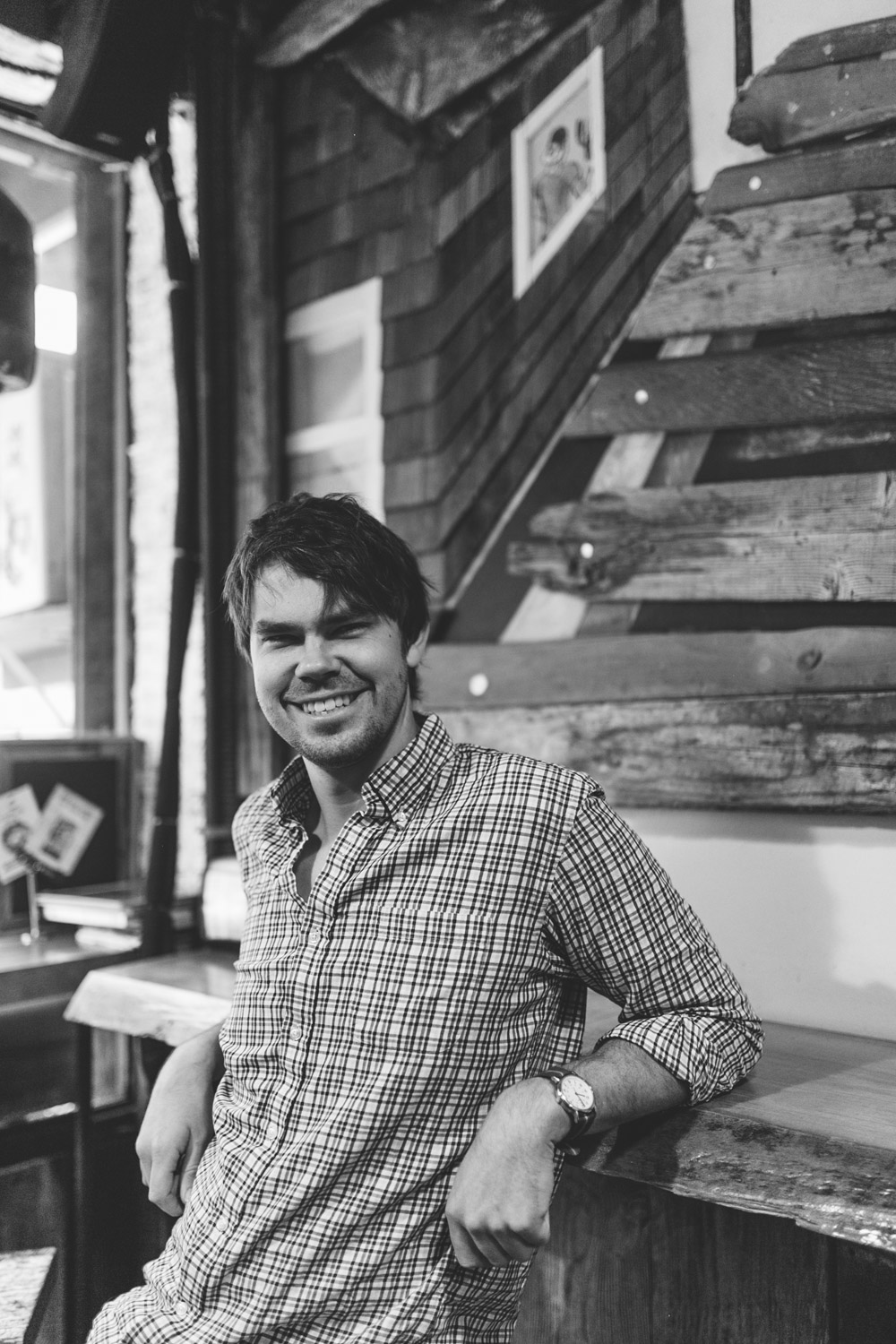
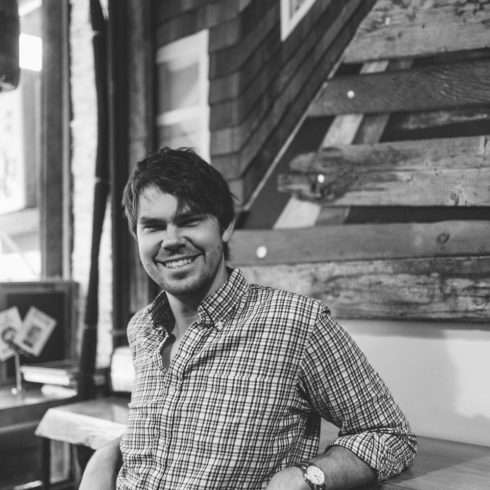
Ben Conniff
Campers will have a chance to get up-close and personal with their ingredients when we jump in the kitchen with Chef Ben Conniff and his sustainable seafood. The secret to the superior Maine-style dishes served up at Luke’s Lobster? A community of local fishermen and a long list of simple ingredients with a responsible history of harvesting and handling.
As the co-founder of Luke’s Lobster, one of Ben’s many jobs is keeping the menu seasonal, sustainable, and delicious. Ben founded this seafood-centric restaurant in New York with partner Luke Holden back in 2009, and by 2013, the two opened Luke’s processing facility to guarantee traceability at every step of their seafood’s ocean-to-plate journey. This means making the most healthy and responsible decisions about what ends up on the plate and how it gets there.
When outside of the kitchen and away from the docks, Ben shared his experiences with sustainable food in the Luke’s Lobster cookbook, Real Maine Food; he has also written for Saveur, GQ, Tasting Table, Yankee, and Smithsonian magazines. Ben’s culinary expertise expands far beyond seafood — he sits on the board of Green Bee Craft Beverages, the artisanal honey-sweetened soda company based in Brunswick, Maine; he is also a certified Safe Quality Food Practitioner and a BJCP Beer Judge.
With seasonal specials and classic comfort sides on the Luke’s Lobster menu for campers this summer, and we can’t wait for Chef Ben to teach us more about where our food comes from and what goes into making the seafood at Luke’s Lobster so sustainable.
Ciara Sidell
After a busy week conquering kitchens all across New York City, our campers will get a chance to find out exactly where their food comes from. We’ll be spending the day harvesting, tasting, and exploring an urban farm operated by Harlem Grown, a nonprofit organization on a mission to inspire youth to lead healthy lives. The culinary creativity of Sprouts campers plus the farming expertise of the Harlem Grown team will make for an extra memorable day of camp! Can you imagine a more dynamic (and delicious) duo? With programs that focus on mentorship, hands-on farming, and education in sustainability and nutrition, Harlem Grown is working hard to make the NYC community a greener place. Ciara Sidell, the Farm Manager and Educator at Harlem Grown, shared with us how her work on programs in mentorship, hands-on farming, nutrition, and sustainability are making the Harlem community a greener place.
The Inside Scoop
Can you describe the goal of Harlem Grown and the work you do to reach that goal?
Harlem Grown focuses on youth development through urban agriculture. We’re inspiring youth to lead healthy and ambitious lives, and that happens through promoting education opportunities in sustainability, nutrition, and cooking. Our goal is to increase access to these healthy eating opportunities.
Why is the work you do important to the community?
I ask kids what they notice on their walk up to the farm and often people comment on the number of fast food restaurants or the number of people hanging around on the street. In a three block radius there were about over fifty fast food restaurants and twenty-some odd pharmacies. We’re alleviating the negative realities of that environment. Harlem Grown provides an oasis in this part of the city to come and be exposed to healthy cooking and nutrition.
What do you find the most fascinating about working at Harlem Grown?
The most fascinating part of my job is the kids. It’s the sheer excitement that the kids have when they walk through the gates. It’s really fascinating every single day to see their smiles and their eyes light up and the excitement they have for touching worms and chickens.
After a long day of farming, what do you want to eat?
I’m known as “the hungry one” in the office; I always need to eat a lot. I think a nice big bowl of pasta with homemade tomato sauce from the tomatoes and herbs that we grow at Harlem Grown, and I would love to top it off with a nice fried egg from one of our chickens. We provide produce to the people in our community, but also to our staff and volunteers.
Is there anything else that you would like us to know about Harlem Grown?
We’re open to the public for people interested in coming to hang out and experience the farms for themselves. Saturdays, 11am – 3pm throughout the entire season, we’re here and we’re excited to meet new people.
